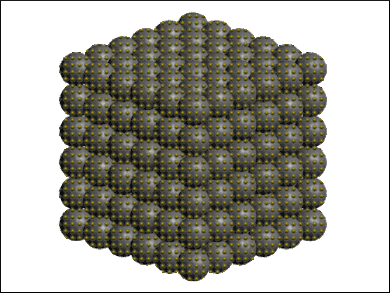Potassium-ion batteries (PIBs) could be a promising alternative for the commonly used lithium-ion batteries. This is due to the higher abundance of potassium on earth. Lithium resources are limited. However, it is difficult to find suitable electrode materials which can accommodate the larger potassium ions and provide sufficiently fast reaction dynamics.
Michael R. Zachariah, Chunsheng Wang, University of Maryland, College Park, USA, and colleagues have developed a high-performance composite anode material for PIBs, consisting of Sb nanoparticles encapsulated by a carbon-sphere network (CSN). The team used an electrospray strategy to create microdroplets of a precursor solution containing polyacrylonitrile (PAN) and SbCl3. The resulting SbCl3-containing PAN nanospheres were heated and reduced with H2 to give the desired Sb@CSN material, which contains metallic Sb.
Sb@CSN anodes can incorporate potassium and form phases such as KSb2, KSb, K5Sb4, and K3Sb sequentially and reversibly. The carbon network provides electrical conductivity. Sb@CSN anodes have a high reversible capacity with a slow capacity decay. According to the researchers, the material provides one of the best anode performances for all-potassium-ion batteries so far.
- Super Stable Antimony-carbon Composite Anodes for Potassium-ion Batteries,
Jing Zheng, Yong Yang, Xiulin Fan, Guangbin Ji, Xiao Ji, Haiyang Wang, Singyuk Hou, Michael Zachariah, Chunsheng Wang,
Energy Environ. Sci. 2019.
https://doi.org/10.1039/c8ee02836b


